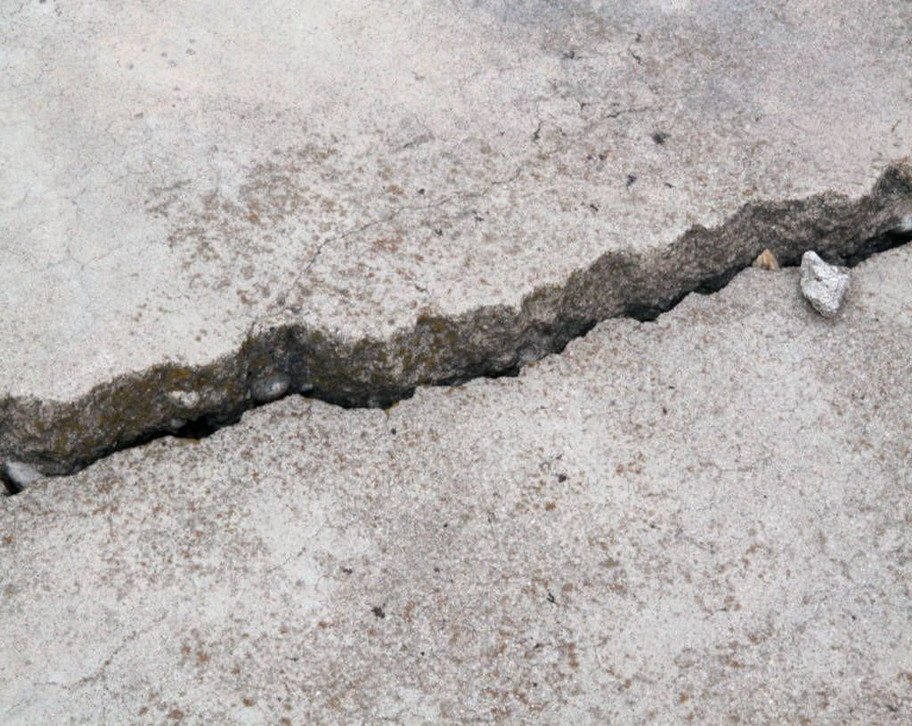Cracks on your floor may seem like part of aging concrete, but sometimes they hint at deeper foundation issues. Just as a small leak can signal major plumbing problems, these cracks might indicate serious concerns beneath your home’s surface.
Not all foundation cracks spell disaster, but knowing when to worry is crucial. Watch for warning signs like cracks wider than 1/4 inch, multiple cracks in the same area, or those accompanied by other structural changes in your home.

Your home’s concrete slab foundation might develop cracks over time, and it’s natural to feel concerned. These cracks in a slab foundation can happen due to several reasons, from normal settling to more serious foundation issues.
Home foundation acts like a giant puzzle piece that supports your entire house. When the soil beneath the foundation shifts or settles, different types of cracks can form. Some hairline cracks are typically just signs of normal settling, while others may indicate structural issues that need attention.
Being able to spot foundation problems early can save you from repairs in future. The key is knowing which slab cracks are harmless and which ones signal trouble. When you notice cracks that continue to grow or spread, it’s smart to have a foundation repair specialist take a look.
Remember, minor cracks aren’t always cause for panic, but keeping an eye on them helps protect your home’s structural integrity. Regular foundation inspection and repair can catch issues before they become major headaches.
When you spot several cracks appearing in your foundation, it’s like your house is sending you multiple warning signals. These patterns of cracks often suggest that there’s more going on beneath the surface than just normal settling.
Multiple cracks can indicate serious problems with your foundation’s support system. Whether it’s unstable soil beneath your home or structural weakness, seeing various cracks in different areas usually means you’re dealing with a larger issue that needs attention.
In these cases, it’s important to get a professional concrete contractor evaluation right away. An expert can examine the overall pattern of cracking and determine if your foundation needs repair or reinforcement. They’ll look for signs like uneven floors, sticking doors, or gaps between walls and ceilings.
Don’t wait until these cracks worsen; getting a thorough inspection can help identify the root cause and prevent more expensive repairs later.
When your walls start to bulge or bow inward, it’s like they’re being squeezed by an invisible force. This happens when excessive soil pressure pushes against your foundation walls, causing them to bend and deform under the stress.
These wall deformations are among the most serious foundation issues you can face. They indicate that your foundation walls are literally being pushed to their limits, which can compromise your home’s entire structural integrity.
Don’t wait to act if you notice any bowing or bulging. These problems can quickly escalate from concerning to dangerous, potentially leading to wall collapse. Getting immediate masonry repair contractor help isn’t just about repairs; it’s about protecting your family’s safety and your home’s stability.
When you spot moisture seeping through foundation cracks, it’s more than just a simple leak. Water intrusion is like a red warning light on your car’s dashboard – it demands immediate attention because it signals potential trouble ahead.
Think of water as your foundation’s worst enemy. Once it finds its way in, it can trigger a chain reaction of problems. The moisture weakens concrete, encourages mold growth, and can even rust your foundation’s reinforcement steel.
Don’t let water issues linger. Even small damp spots or minor seepage need quick action. Getting these cracks properly sealed isn’t just about stopping leaks; it’s about preventing the kind of long-term damage that could seriously impact your home’s structure and your family’s health.
If you live in Fredericton or nearby areas, contact a trusted foundation and concrete repair expert at Atlantic Brick and Stone. Our experienced team can inspect the damage and suggest the best solution to protect your home. Get in touch with us today.
Vertical cracks in foundation walls are typically less concerning and often result from normal concrete curing or minor settling. Diagonal cracks, especially those wider at one end, can indicate significant foundation movement and potential uneven soil settlement. Stair-step cracks in masonry walls are among the most serious, strongly suggesting differential settlement or underlying soil pressure issues that demand immediate professional evaluation.
Yes, small hairline cracks are quite common and often form as concrete cures and settles. These minor cracks usually don’t affect the strength of your foundation. However, it’s wise to keep an eye on them to make sure they don’t get bigger over time.
Cracks can appear for several reasons, including soil movement, poor drainage, plumbing leaks, or temperature changes. In areas with clay-heavy soil, expansion and contraction are especially common causes of foundation cracking.
Yes, if ignored. Small cracks can allow water or moisture to seep in, leading to mold or further weakening the structure. Over time, untreated cracks may grow and affect the stability of your home.
Cosmetic cracks are usually thin and don’t change over time. Structural cracks are wider, may be uneven, and can indicate that the foundation is shifting or sinking. A professional foundation contractor can help you tell the difference.
Repair costs can vary widely depending on the size and cause of the crack. Minor sealing jobs might cost a few hundred dollars, while structural repairs involving leveling or underpinning can cost several thousand.
GET STARTED
Create stunning structures with our residential and commercial masonry services in Fredericton. From meticulous designs to the completed build, our process is professional and rewarding, and we can’t wait to build your dream with you.
Atlantic Brick and Stone, one of the best masonry contractors in Fredericton, NB
Contact
8 Muskie Street, Lower Kingsclear, New Brunswick E3E 0E7, Canada